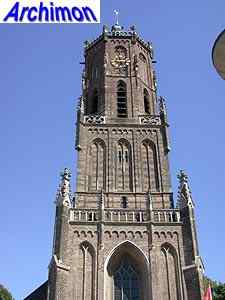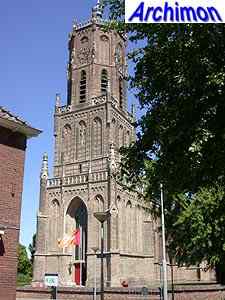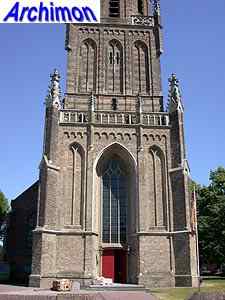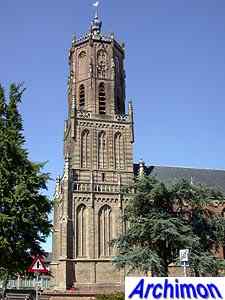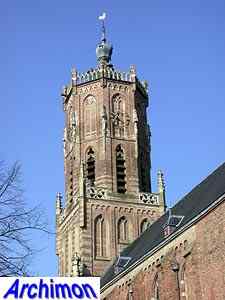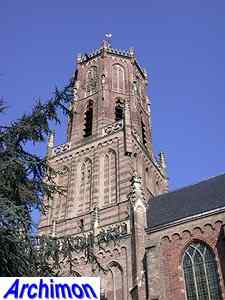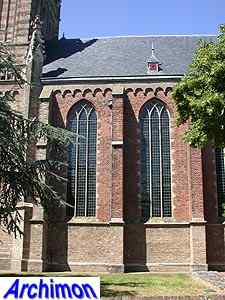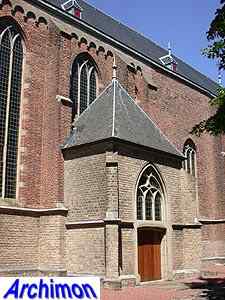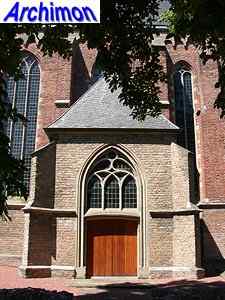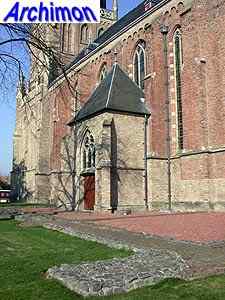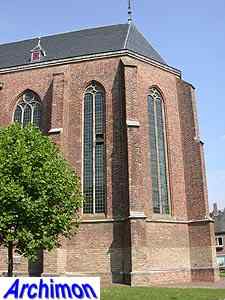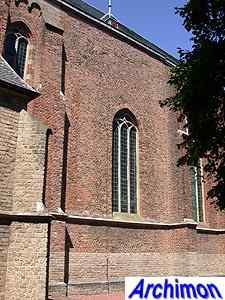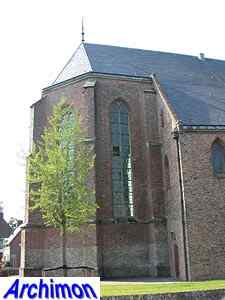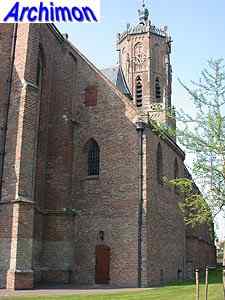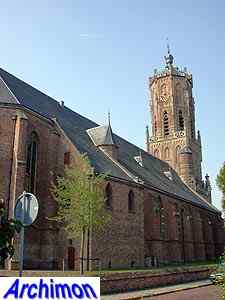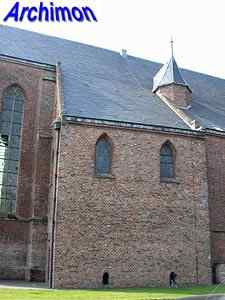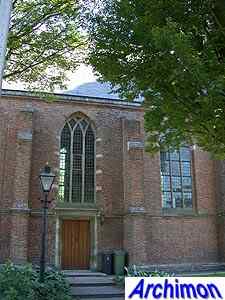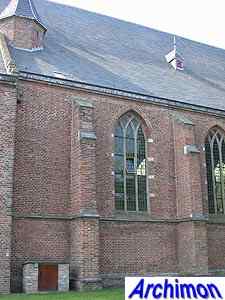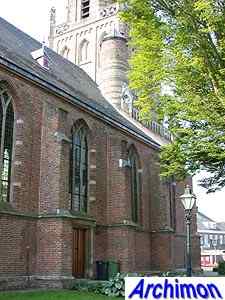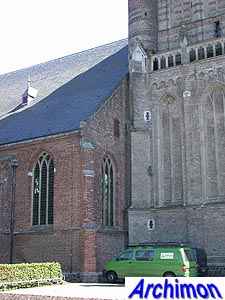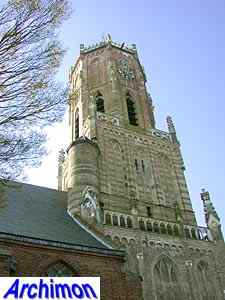
Elst (G): reformed church or St. Werenfried
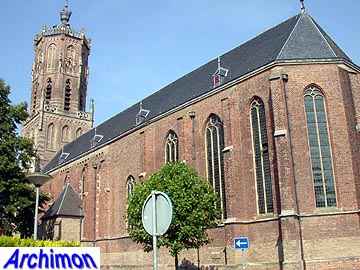 It
is known that many of the first
churches were built on the sites of old pagan temples. In Elst a
particularly large temple had been built in ca. 70, after a previous
one was destroyed during the Batavian Rebellion in the year 69. This
temple was used until the third century, after which it fell into
decay.
It
is known that many of the first
churches were built on the sites of old pagan temples. In Elst a
particularly large temple had been built in ca. 70, after a previous
one was destroyed during the Batavian Rebellion in the year 69. This
temple was used until the third century, after which it fell into
decay.
A church was built in the 8th century by Werenfried, a follower
of Willibrord, the first bishop of Utrecht. This was a small Romanesque
church and consisted of a simple rectangular nave with a rectangular
choir. It was
built on the foundations of the second Roman temple, probably using the
stones of the ruins. The church was enlarged several times, following
the acquisition of relics of the founde and the pilgrimages in which
this resulted. In the 15th century the
church was replaced by the current Gothic building. In ca. 1450 the new
choir was built, with the nave and the tower following between 1455 and
1484.
Only a small part of the Romanesque church was retained and can be
found at the northside, next to the
choir. The church has a two-aisled nave, which is not unusual for a
church in
Lower Rhine Gothic (see Gothicism).
The tower is related to the Utrecht-group of towers, consisting of two
square segments decorated with series of three niches, and an octagonal
upper segment.
After the church has been heavily damaged in 1944, a big restoration
and partly reconstruction was carried out from 1949 until 1953. During
this restoration the foundations of all predecessors were discovered.
Today parts of these are visible in the yard around the church.
